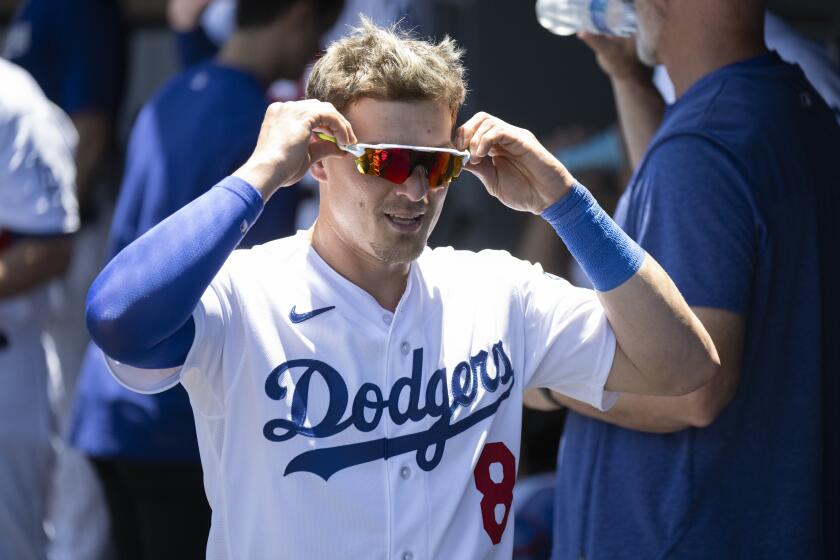Baseball Players Go to Labor Board Over Drug Testing
- Share via
The major league baseball players’ union has filed an unfair-labor-practice claim against baseball Commissioner Peter Ueberroth, the 26 club owners and the owners’ Player Relations Committee, charging that they illegally tried to go around the union to institute a players’ drug testing program, union leader Donald Fehr said Monday.
Fehr added that a second complaint to the National Labor Relations Board charges that the owners’ Oct. 22 decision to scrap the 1984 joint drug agreement with the union--under which testing was confined to those with known drug problems--was a response to the players’ refusal to allow the union to be bypassed.
The players for the most part told Ueberroth that they will not accept the volunteer drug testing program he proposed Sept. 24 unless arrangements for the testing were negotiated through the union. Talks to that end began in early October but were broken off last week.
In New York, Daniel Silverman, the NLRB regional director, said Monday that he will conduct a preliminary inquiry to determine whether to conduct a formal hearing on the union complaint. Silverman said he will make his decision on the hearing in 30 to 45 days. He said any formal hearing would be public and indicated that Ueberroth would be called to testify.
Ueberroth was reported by his office to be attending meetings in Scottsdale, Ariz., and was not available for comment.
Ueberroth has been stepping up his criticism of the union’s anti-drug testing position.
Late last week, for instance, appearing on the nationally shown “Donahue” show, Ueberroth said that “for five months we’ve been pleading with the union, on our knees with the union, doing anything we could to say, ‘Listen, you’re hurting your own ballplayers’ ” by not accepting testing.
Ueberroth added that it is not the players but the union leaders who have been expressing the drug testing issue in civil liberties terms when, he insisted, it is an issue that primarily concerns the players’ reputation, and the confidence youngsters and families will have in the game of baseball. “It’s not a civil liberties question, it’s a kids’ question,” he said.
More to Read
Go beyond the scoreboard
Get the latest on L.A.'s teams in the daily Sports Report newsletter.
You may occasionally receive promotional content from the Los Angeles Times.










